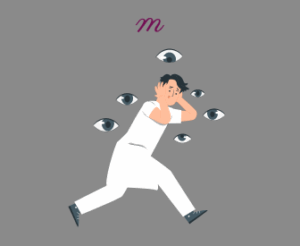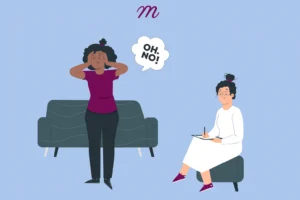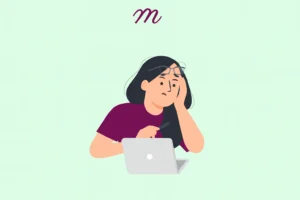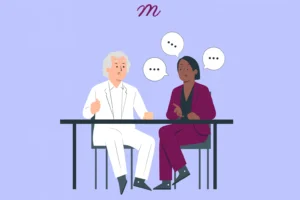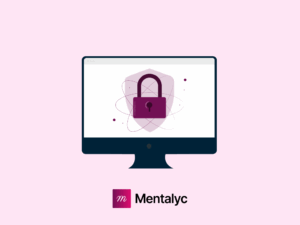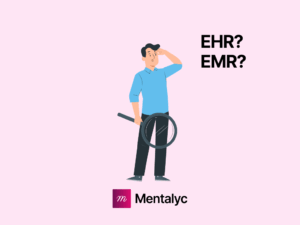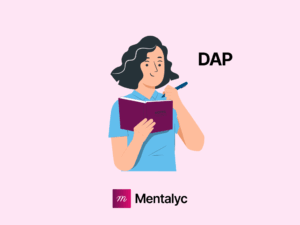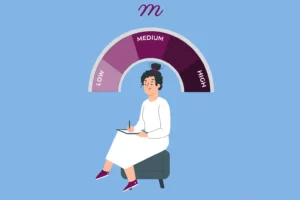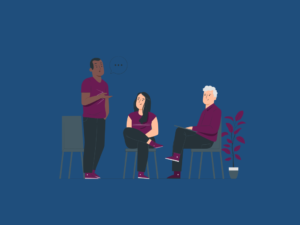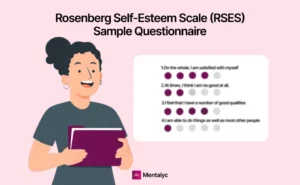Mentalyc Blog
-
Therapeutic boundaries refer to the clear and consistent limits that define the professional relationship between a therapist and a client. These boundaries ensure that therapy remains a safe, ethical, and goal-directed space. They cover aspects like time, place, and content of sessions, how and when communication happens, and the roles both therapist and client play. […]
-
Electronic Health Records (EHRs) help to give clearer, more organized, and high-quality mental health support. This digital software system aims to replace manual documentation. It is created with the sole purpose of managing client information easily. Most therapists make use of Electronic Health Records to improve client care. EHRs facilitate therapists and client communication through […]
-
The Electronic health record history reflects a major shift in how client information is documented, stored, and accessed in healthcare and mental health settings. Long before digital systems, records were kept entirely on paper, vulnerable to damage, loss, or theft, and often difficult to organize or retrieve. Early versions of EHRs focused primarily on billing […]
-
Therapeutic contracts may seem dull, even unnecessary for some, but without them the integrity of the psychological process falters. With no clear boundaries and a stable structure, the expectations of both parties are bound to differ. Clarifying the relationship, conditions, and points of possible disagreement beforehand is the recipe for success. In this guide, we […]
-
The rise of telehealth has reshaped how clinicians build and sustain the therapeutic alliance in virtual settings, a core element of effective treatment. As virtual care continues to expand, many practitioners are learning how to create meaningful client connections through video-based platforms. While this approach offers greater flexibility and accessibility, it also brings important questions […]
-
In Cognitive Behavioral Therapy (CBT), the therapeutic relationship is the heartbeat of change. It’s what turns techniques and worksheets into real progress. Unlike psychodynamic approaches that emphasize past experiences and unconscious processes, CBT focuses on a collaborative and goal-oriented alliance. But between structured sessions, treatment plans, and endless documentation, it can be hard to stay fully tuned in […]
-
A rupture in therapeutic alliance refers to a breakdown or strain in the collaborative and affective bond between a therapist and client. These moments can interrupt progress and may stem from misunderstandings, unresolved transference, therapist error, or broader interpersonal dynamics. Ruptures can be seen not as failures, but as opportunities for growth, when approached with […]
-
Empathy in counselling is often confused with related but distinct concepts such as sympathy, compassion, or emotional validation. The American Psychological Association defines empathy as the ability to understand another person’s thoughts, feelings, and perceptions from their perspective, but this definition can fall short in a therapeutic context. From personal experience, I have come to […]
-
The foundation of effective therapy rests on the connection formed between the person seeking help and their counselor. Well before modern therapy evolved into structured methods and specialized approaches, Carl Rogers’ core conditions introduced a revolutionary concept that true healing starts with authentic human connection rather than clinical assessment or direction. His perspective, grounded in […]
-
The Working Alliance Inventory was originally created by Horvath and Greenberg in 1989 to assess the quality of the alliance between therapist and client. When it comes to successful therapy, we have known for years that the relationship between therapist and client matters greatly. The therapeutic approach that you use does not matter as much […]
-
Therapists and mental health professionals work hard to support their clients, but one of the biggest challenges they face is keeping up with documentation. Writing therapy notes after each session can take hours every week. It’s time-consuming, mentally tiring, and often pulls focus away from direct client care. This is especially difficult for those in […]
-
Talkative clients are clients who talk endlessly, fill every silence, and bounce between topics without taking a breath. These talkative clients create special challenges in the therapy room. Good strategies can help sessions be productive while still respecting their way of communicating. This article will examine why some clients talk so much, practical ways to […]
-
SMART therapy goals are Specific, Measurable, Achievable, Relevant, and Time-bound objectives that create a clear roadmap for change. These structured goals serve as anchoring points in therapy, where both client and therapist can celebrate small victories together. Therapy often involves navigating complex emotions, uncovering patterns, and addressing deeply rooted behaviors, which can feel overwhelming without […]
-
Emotional Intelligence (EI) is highly essential in counseling because it informs the level of empathy the counselor displays towards patients and also shapes the therapy experience for the client. The realization and understanding of one’s own emotions and the aptitude to appropriately respond to other people’s emotions is EI. While a therapist operates in a […]
-
Keep Your Patients’ Notes Private and Secure with the Best HIPAA Compliant Note-Taking Software Have you ever finished a long day of sessions only to feel overwhelmed by the stack of notes still waiting for you? For many clinicians, documentation is one of the most stressful parts of the job. In the past, therapists had […]
-
Therapists often face the challenge of keeping up with detailed session notes while managing a full client load. Mentalyc’s AI SOAP Note Generator is designed to make this task easier by turning voice recordings or written summaries into clear, structured SOAP notes in minutes. It helps therapists save time, stay organized, and reduce the stress […]
-
In today’s clinical world, Electronic Health Records (EHRs) have become essential for securely storing and organizing client health information. They’re the backbone of practice management – but when it comes to note-taking, many EHRs fall short. Their built-in tools often feel rigid, time-consuming, or limited compared to the flexibility clinicians need for meaningful documentation. That’s […]
-
Ask any therapist what they dread most, and notes almost always make the list. They’re necessary, but often stressful and time-consuming. That’s why clinicians lean on structured systems like the DAP Format for Therapy, which turns session details into a clear flow of Data, Assessment, and Plan. Combined with supports like a DAP Note Generator, […]
-
The Adult ADHD Self-Report Scale (ASRS) is an 18-item checklist made by the World Health Organization (WHO) along with ADHD experts, psychiatrists, and researchers to check for ADHD symptoms in adults, since ADHD looks different in adults than in kids. The questions follow DSM-IV criteria but use adult-focused language that shows how symptoms might pop […]
-
Couple therapy sessions are different compared to individual therapy sessions. Therapists have to handle the complex back-and-forth between partners while staying neutral and making sure everyone feels safe enough to be vulnerable. New therapists often find nothing in grad school that prepares them for how intense these sessions can get or how complicated the patterns […]
-
Paperwork burnout happens when therapists engage in client documentation to the point of emotional and physical exhaustion. Mental health professionals often face this when writing progress notes. High caseloads and administrative tasks can make it worse. This creates a cycle of stress and burnout that hurts therapists. This stress affects therapists and the care they […]
-
The Ritvo Autism Asperger Diagnostic Scale (RAADS-R) is a clinician-administered self-report tool designed to identify autism-related traits in adults—particularly those whose presentations may not have raised diagnostic flags in childhood. It assesses four domains: language, social communication, sensory-motor symptoms, and focused interests. While the RAADS-R is not a diagnostic tool, it provides useful clinical information. It is […]
-
The Perceived Stress Scale (PSS) is a psychological instrument to assess the degree to which individuals perceive situations in their lives as stressful. Rather than focusing on specific life events or objective stressors, the PSS measures a person’s subjective experience of stress. This makes it especially useful in therapeutic settings where a client’s emotional interpretation […]
-
The Rosenberg Self-Esteem Scale (RSES) is one of the most common tools for assessing self-worth and emotional well-being. For therapists, it’s more than a questionnaire. Because self-esteem shapes everything from relationships to resilience, assessing it helps pinpoint patterns, set goals, and track growth over time. This guide explains how to use the RSES in therapy, from structure and scoring to […]
